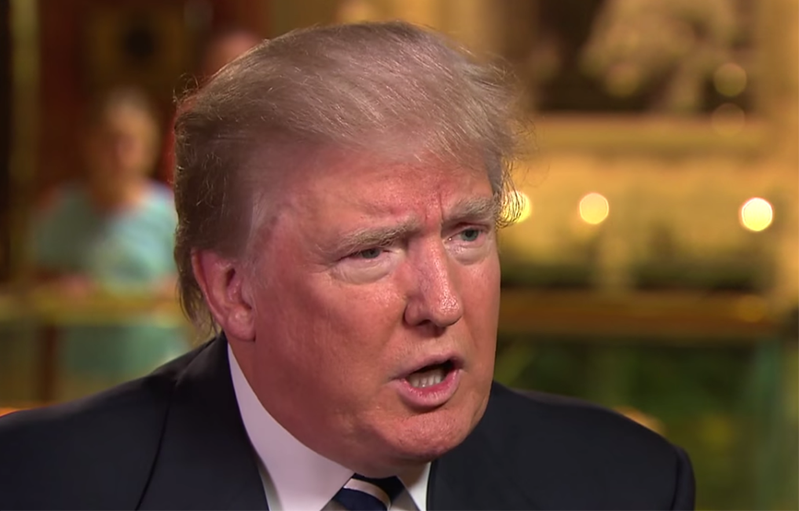
Current Republican presidential candidate and real-estate tycoon Donald Trump has made controversial remarks about Mexico and illegal immigration, which have drawn disdain from many within the Latino community in the United States. Now he may have received a threat from a notorious Mexican drug lord for his remarks.
According to John Santucci of ABC News, Trump has asked the FBI to look into a threatening tweet he received on Twitter when he commented about notorious Mexican drug lord Joaquin "El Chapo" Guzman, who recently escaped from a maximum-security prison; it is not known whether the threat actually came from Guzman himself or someone else. Sources have indicated to ABC News that Trump contacted the FBI in Manhattan on Monday.
"Keep [expletive] around and I'm gonna make you swallow your [expletive] words...," the threat said in Spanish on Twitter.
ABC News reported that Trump referred to Guzman's escape to reinforce his arguments on immigration and border security.
"El Chapo and the Mexican drug cartels use the border unimpeded like it was a vacuum cleaner, sucking drugs and death right into the U.S.," Trump wrote on Twitter.
Trump doubled down on his controversial stances in a statement on Monday.
"I'm fighting for much more than myself," Trump said. "I'm fighting for the future of our country which is being overrun by criminals. You can't be intimidated. This is too important."
As for Guzman, the leader of the Sinaloa cartel, ABC News reported that the Mexican government is conducting a massive manhunt for him after he escaped on Saturday night. He was arrested back in 2014 after more than 10 years on the run.
According to ABC News, Trump first made controversial remarks about Mexicans and illegal immigration when he first announced his run for the presidency in the Republican Party. His fiery comments have led Univision, NBC and Macy's to cut their business ties with him.
"When Mexico sends its people, they're not sending their best," Trump said in his announcement. "They're bringing drugs. They're bringing crime. They're rapists. And some, I assume, are good people."
Trump defended his point of view to Katy Tur of NBC News in a comprehensive interview that was posted on YouTube. He asserted that he had a chance among Latino voters.
"I will win the Latino vote because I want to put them to work," Trump said. "I'm going to be able to get jobs. I will take jobs back from China. I'll take jobs back from Japan, where they are making millions and millions of cars. What do we get? We send relatively little to Japan by comparison."
Trump emphasized that Mexico secured jobs in car factories for their people because "their leaders are smarter than our leaders, and their negotiators are far better."
"That will never happen if I'm president," Trump said in a confident tone.
Tur then told Trump that many within the Latino community were offended by his remarks. She gave him an opportunity to apologize and retract those controversial statements.
"There's nothing to apologize for," Trump quipped. "My statement is referring to Mexico, and they're pushing a lot of bad people into our country. We're taking care of a lot of criminals who should not be in our country."
Trump admitted that he had "great respect for Mexico" and the Mexican people. However, he still stood by his assertions about the country.
"The country of Mexico is killing us," Trump said. "The country of Mexico is taking our jobs. They're killing us at the border. They're taking advantage of the fact we have stupid negotiators ... and we have leaders who don't know what they're doing."
Trump added that he "was angry at our leadership for not putting the right people into negotiations." Tur then asked him why suits and ties under his brand name were made in other countries instead of the United States.
"China so manipulates its currency that it's very hard to find companies that can do business in the United States," Trump said. "I'm a businessman."






